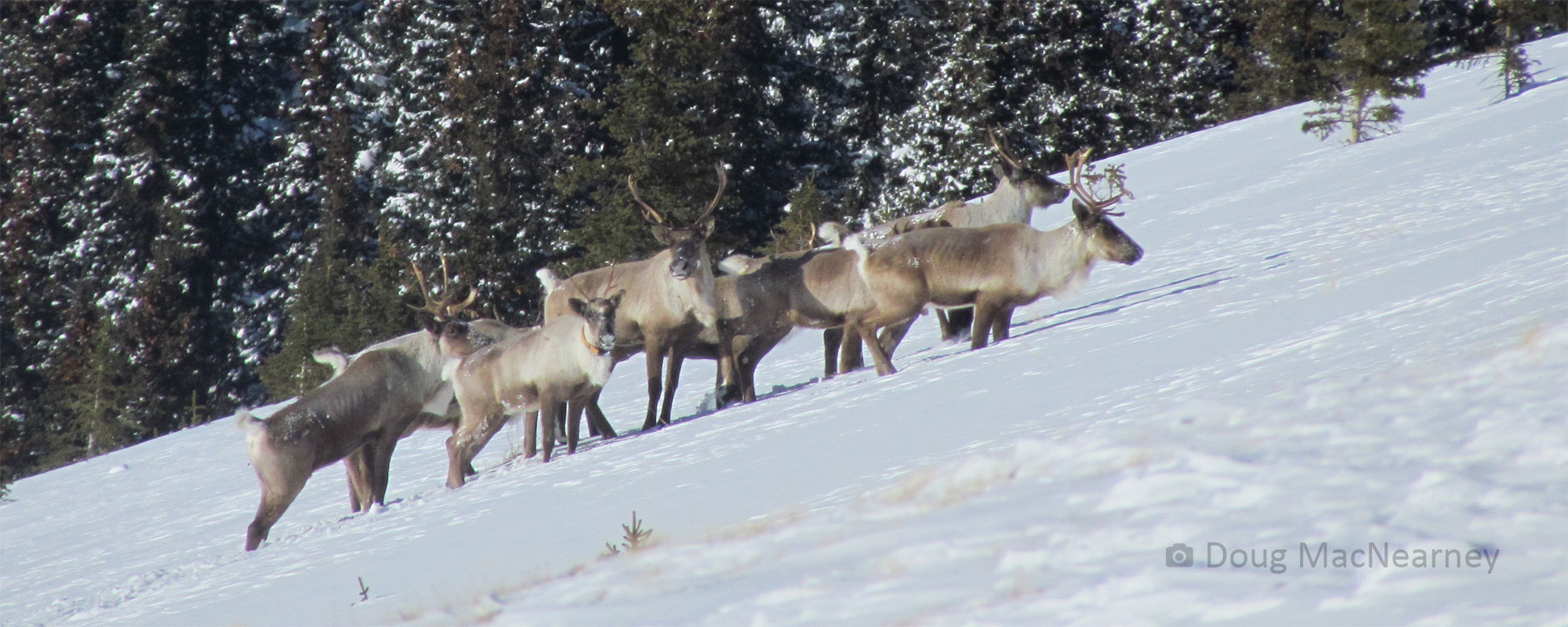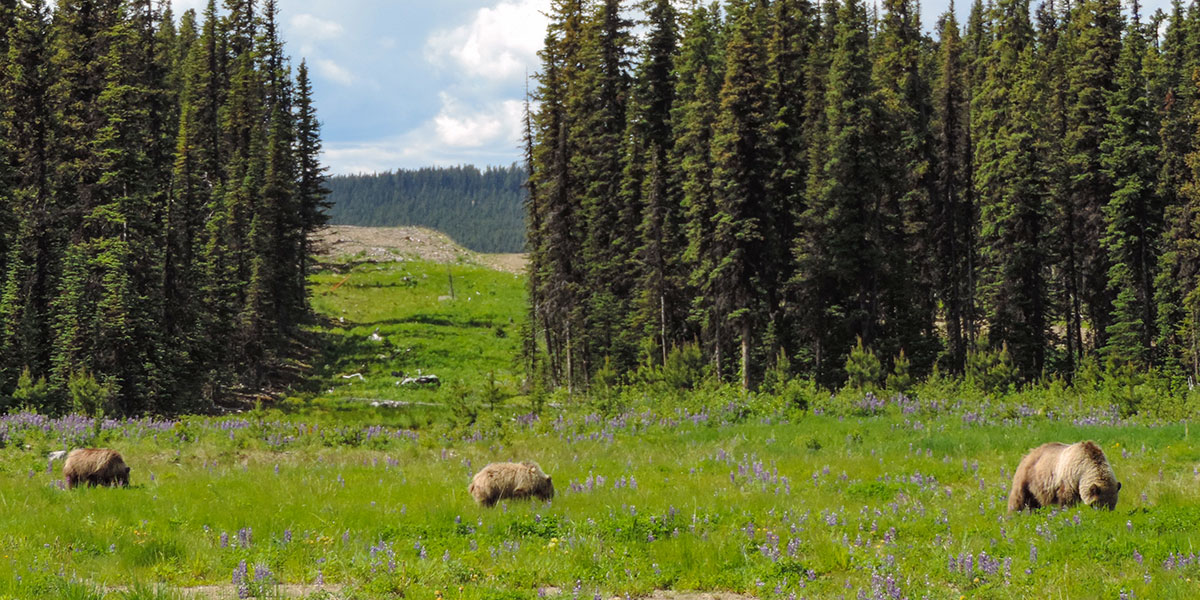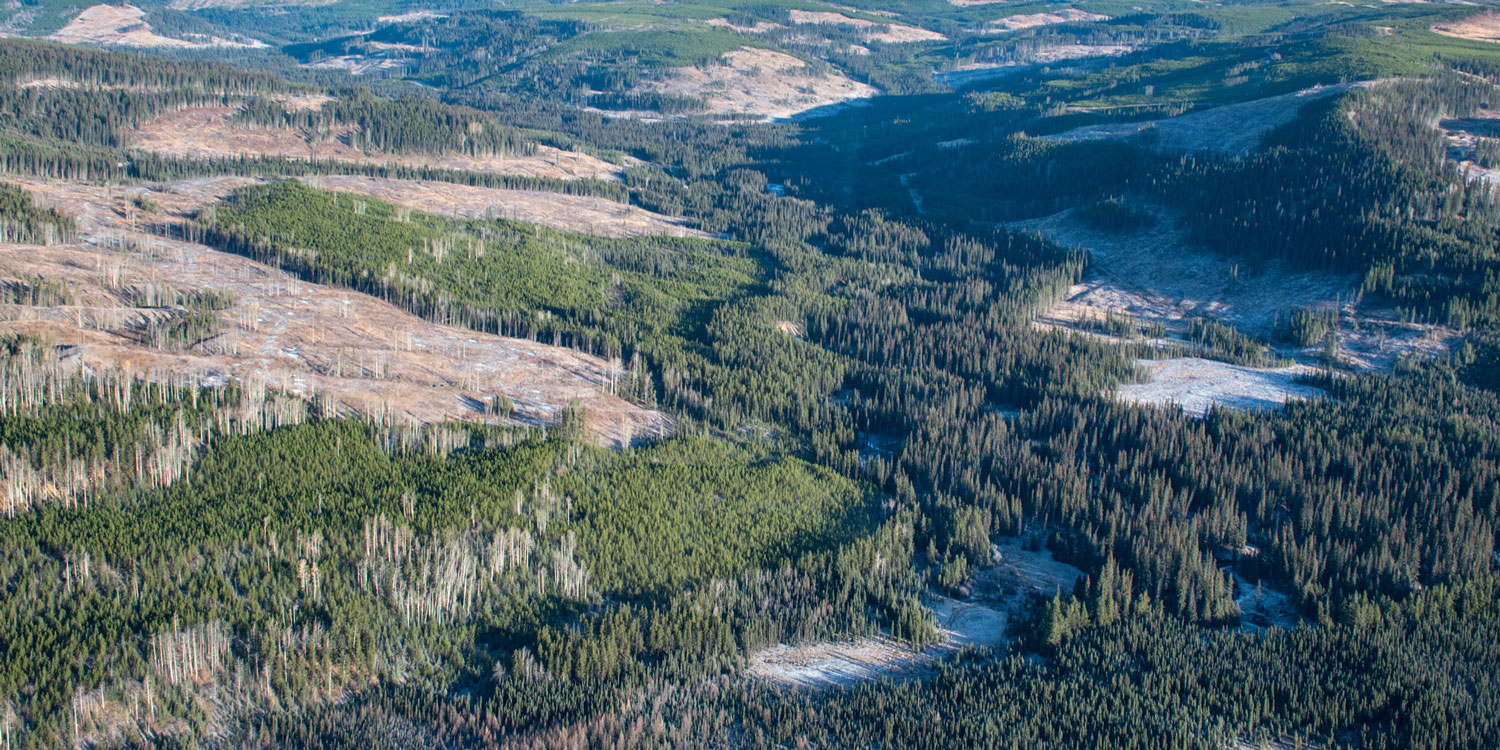Ongoing Projects
Reducing the effects of non-permanent forestry roads on woodland caribou in Alberta
Awarded in spring 2023, this one-year project is being completed by Solstice Environmental Management, Circle T Consulting Ltd. and FPInnovations and will help to:
- Develop a deeper understanding of the impacts of temporary forestry roads on woodland caribou and identify new and better ways to plan, design, construct, use and reclaim temporary forestry roads for better and faster outcomes for woodland caribou.
- Clarify how optimal or improved temporary road design/recovery potentially differ between different harvesting approaches, with the goal of identifying best practices specific to each harvesting approach and contributing to faster recovery of temporary roads.
- Advance our understanding of how temporary road planning, design, construction, use and reclamation are linked to key process drivers of woodland caribou recovery, and clarify how operational practitioners could implement new planning, design, construction, use and reclamation practices to realize positive outcomes for woodland caribou.
Study to advance harvest system and silviculture practices for improved woodland caribou and fibre outcomes
This multi-faceted study is being completed by the fRI Research Caribou Program over a three-year period. Areas it will explore include:
- Current stand characteristics of areas with documented woodland caribou use in various regions of Alberta.
- The likelihood of harvested areas producing future woodland caribou habitat, and how this potentially differs between fire and harvest disturbances.
- Whether historical harvest blocks and wildfires within various regions of the province are on a trajectory to produce future woodland caribou habitat and silvicultural options available to produce optimal caribou habitat over time in harvested stands.
- Gaps and opportunities in Alberta’s forest policies for regional silviculture treatments with the potential to improve the trajectory of harvested stands to become caribou habitat while still meeting desired fibre volume objectives.
Reconciling pre-industrial patterns, caribou habitat and management reality
For this three-year study, fRI Research’s Healthy Landscape Program will seek to:
- Obtain a better understanding of if, and to what degree, spatial clustering of anthropogenic disturbances is possible to create on the ground, and how it varies under different conditions and policy scenarios.
- Assess the potential impact of various scenarios on woodland caribou habitat and other values.
- Understand if natural range of variation (NRV) aligns with proposed harvesting pattern changes to improve woodland caribou habitat outcomes and whether forest management activities can closely approximate these.
An evaluation of the feasibility of terrestrial lichen seeding and/or transplantation
Awarded to the Northern Alberta Institute of Technology (NAIT) Plant and Seed Technology Access Centre (P&S TAC), this three-year study seeks to achieve the following:
- Provide a critical review of research advances on lichen transplantation and seeding technologies and interpret the results for application in caribou habitat restoration.
- Better understand the efficacy of these methods, and the site conditions that best promote their success.
- Understand how optimal site conditions and the best corresponding seeding and transplant techniques might vary between ecologically different regions of the province.
- Explore how the logistical and economical challenges of implementing these techniques can be overcome.
Completed Projects
Reports for the projects below are published on our Project Reports page.
The application of quantitative metrics in forest management and caribou recovery: a jurisdictional scan of quantitative approaches to classifying ‘undisturbed’ caribou habitat
This project is being completed by EcoLogic Research and will be complete by the end of 2024 and will include:
- A jurisdictional scan to learn how/if Alberta and other provinces and territories are applying quantitative criteria (e.g., measurable timelines, stand metrics, population viability metrics etc.) to meet the qualitativefederal requirements for undisturbed habitat, and an assessment of whether any identified approaches may be possible from a policy, operational and ecological perspective in Alberta.
- A literature review to understand how potential quantitative criteria identified in the jurisdictional scan may link to/influence caribou vital rates (e.g., adult survival and calf recruitment) or caribou ecology and behaviour (e.g., habitat use and avoidance, effects of noise or sensory disturbance). Will also
explore if there are key ecological processes important to positive caribou outcomes (e.g., predator mobility, primary prey habitat availability etc.) that could be modelled in the context of long-term forestry and silvicultural activities, to help refine operational implementation opportunities on the ground to improve future woodland caribou habitat.
Understanding options for, and value of, alternative harvesting and silvicultural approaches for promoting woodland caribou habitat within coniferous forests and deciduous/mixedwood forests
This review was conducted by FORCORP Solutions Ltd.. Key objectives included:
- Identifying alternative harvesting and silvicultural systems that are applicable to Alberta’s forests and investigating them through the lens of caribou biology and habitat requirements.
- Providing a description of silvicultural systems, their use, outcomes and applicability to the boreal forests of Alberta.
- Assessing each system in terms of resulting vegetation dynamics and how this relates to caribou use and to use by other ungulate species, while considering regional differences.
- For techniques that have a potential benefit to caribou, assessing the trade-offs involved in implementation, including access requirements, harvest and reforestation costs and other economic implications.
- Assessing the climate resiliency for each silvicultural system being reviewed.
Exploring the implementation of aggregated harvest in woodland caribou ranges compared to current and other potential harvesting approaches on: ecological outcomes for woodland caribou, other species/values and socio-economic and operational considerations
Also awarded to FORCORP, this 10-month project had a strong operational focus for forestry managers. Key project outcomes included:
- Exploring the questions “In different regions of the province, will aggregated harvest approaches work to improve caribou habitat outcomes, how can they be tailored to work most effectively for caribou and provide for a working landscape, and what will the trade-offs be for other values, both ecological and socioeconomic?”
- Providing additional knowledge on the nuances of the aggregated harvest approach, in terms of the relatively unexplored question of how the scale of implementation affects outcomes.
- Testing a range of different aggregated harvest scenarios against business as usual (BAU) approaches (existing Spatial Harvest Sequences) to compare different harvest levels, spatial layouts, and re-entry rules.
- Providing an assessment of the impact of the tested scenarios on caribou habitat and a wide range of other species and values and socio-economic metrics.
- Developing a methodology to test how the scale of aggregation affects outcomes.
Review of Alberta’s Integrated Land Management policies, practices and legislation
Awarded to the Foothills Landscape Management Forum, this review was completed in May 2021. As deliverables for this project, the consultants:
- Conducted a thorough literature review and structured interviews to synthesize ILM practices in Alberta and review and analyze ILM practices used in other comparable jurisdictions.
- Provided a review of Alberta’s ILM policy potential and identify useful cross-sector communication/collaboration techniques.
- Collated draft recommendations for cross-industry ILM approaches for improved woodland caribou habitat outcomes and tested these in a one-day stakeholder workshop to help inform the final recommendations for the project report.







